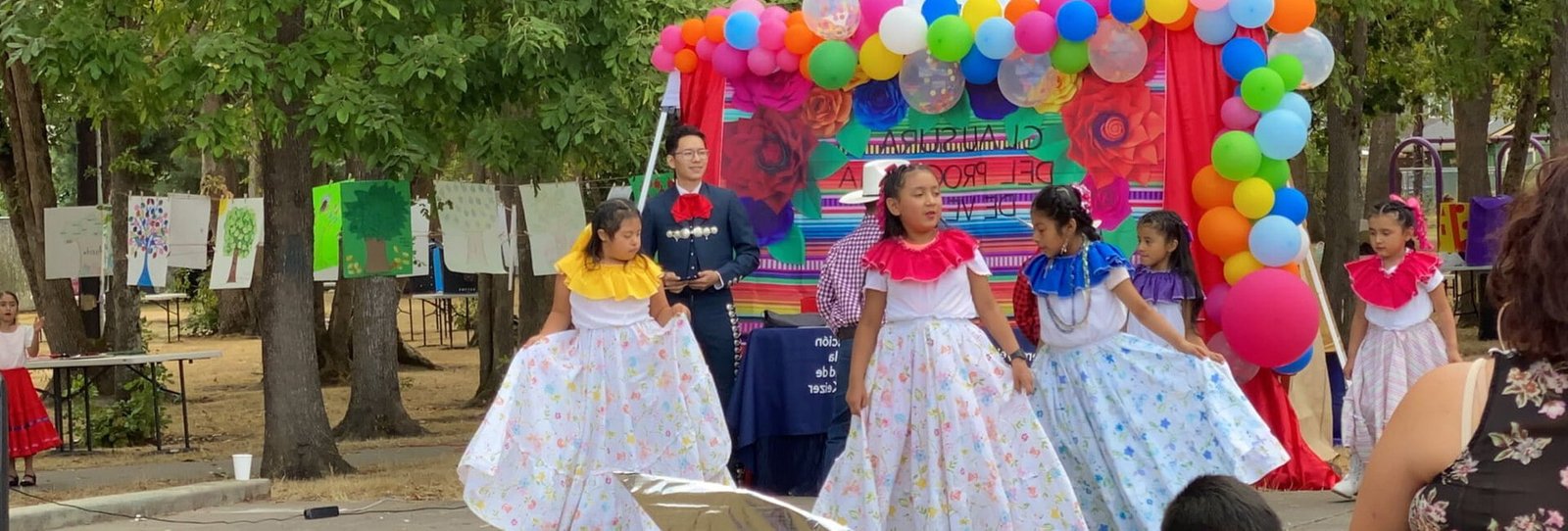During Coronavirus, Spanish-speaking Parents Face More Obstacles
During the Coronavirus pandemic, Spanish-speaking immigrant parents are facing more obstacles to helping their children with their education.
The pandemic created a unique situation, and we had to respond with flexibility and creativity. We had to cancel our luncheon in April and cancel parent classes for the remainder of the school year. We had to stop planning for summer education programs through the school district and the Oregon Department of Education. But our funders stepped up with emergency support and extra funding.
We had to figure out a different way to do what we do best – help Spanish-speaking parents with their children at home. We decided that mailing resources and calling parents individually were the most important priorities. In addition, families began calling us right away, so we had an idea of what the needs and questions were.
In March:
We researched and put together packets of resources and a newsletter and mailed almost 4000 families. It was a task to find resources in Spanish, and at the same time we were working with other organizations who were also looking for resources in Spanish. We translated some when necessary. Ultimately, the packets were about 12 pages worth, back and front on 6 papers. It was a tremendous amount of work and took almost 50 reams of paper. Staff and volunteers, and their children, worked at home with piles of envelopes, folding and stuffing hundreds of packets for over two weeks. All the packets were mailed by the last week of March.
Gathering the resources and making the packets gave staff the training they needed to be able to answer questions when parents called them and to prepare for the phone calls we planned to make to parents.
In March and April:
We developed a survey and started making hundreds of phone calls. The result was hundreds of messages left with offers of assistance, and 326 surveys finished. Questions were conversational, and each call was about 30 minutes long. Many of the parents were moms at home who welcomed the contact with someone to whom they could express their concerns. Most had received the packets of resources and expressed gratitude. The surveys assessed families’ technology access, availability of books, art and educational supplies, ability to connect with educational resources and basic needs. We also relayed current information from the school district and referred to resources in the mailed packet. Other questions asked about emotions, general concerns, parenting challenges, and worries about their children’s learning. In addition, we emphasized basic Coronavirus safety protocols and problem solved for unusual situations. Finally, we offered coaching and mentoring, made appointments and assigned staff to follow-up.
We also collected over 1000 reading books, and enough art supplies, school supplies, and paper to pack and distribute over 120 bags with age and grade level appropriate materials and activities in both Spanish and English.
In April and May:
The result was that 211 parents asked for a call back in April (and parents continued to call us also from our many other contacts). We gave parents guidance about parenting skills from our evidence based programs, helped them develop a structure and routine for their children, address emotional and mental health issues, and overall, made a connection to their world to mitigate isolation, anxiety and depression. School started the first week of April, so our call-backs also focused on helping them get connected to the internet or problems with picking up the children’s Chrome Books. However, 159 parents wanted some form of mentoring or coaching, from intensive parenting assistance to structuring a routine for the online education their children were starting. After the second call back, we were down to about half of parents who wanted more call-backs, and now, in the beginning of June, we have under 30 parents still wanting more assistance on the phone. These call-backs created important relationships that we want to make sure and capitalize on in the future.
June 2020:
We area now planning for what is to come. We envision continuing a lot of one-on-one mentoring and coaching, possibly some small group classes, and increasing the resources for parents to teach and provide extra learning experiences at home, since our children may continue falling behind. Happily, the school district is going to let all students keep their Chrome Books over the summer.
We are continuing virtual participation and training for parent leadership development and civic involvement of our parent leadership group (see post about the school budget process).
Meanwhile, we applied for a grant to help us continue our work with parents over the summer to help their children be more ready for fall and hopefully catch up in the lost education they have suffered. We hope to do a version of the program, “READY! for Kindergarten (¡Listo! para Kinder)” and plan on delivering many packets of “homework” practice for other age groups. Most importantly, we will keep up our relationships with parents, talking about their children’s future and offering assistance.
Salem Reporter article about home schooling

